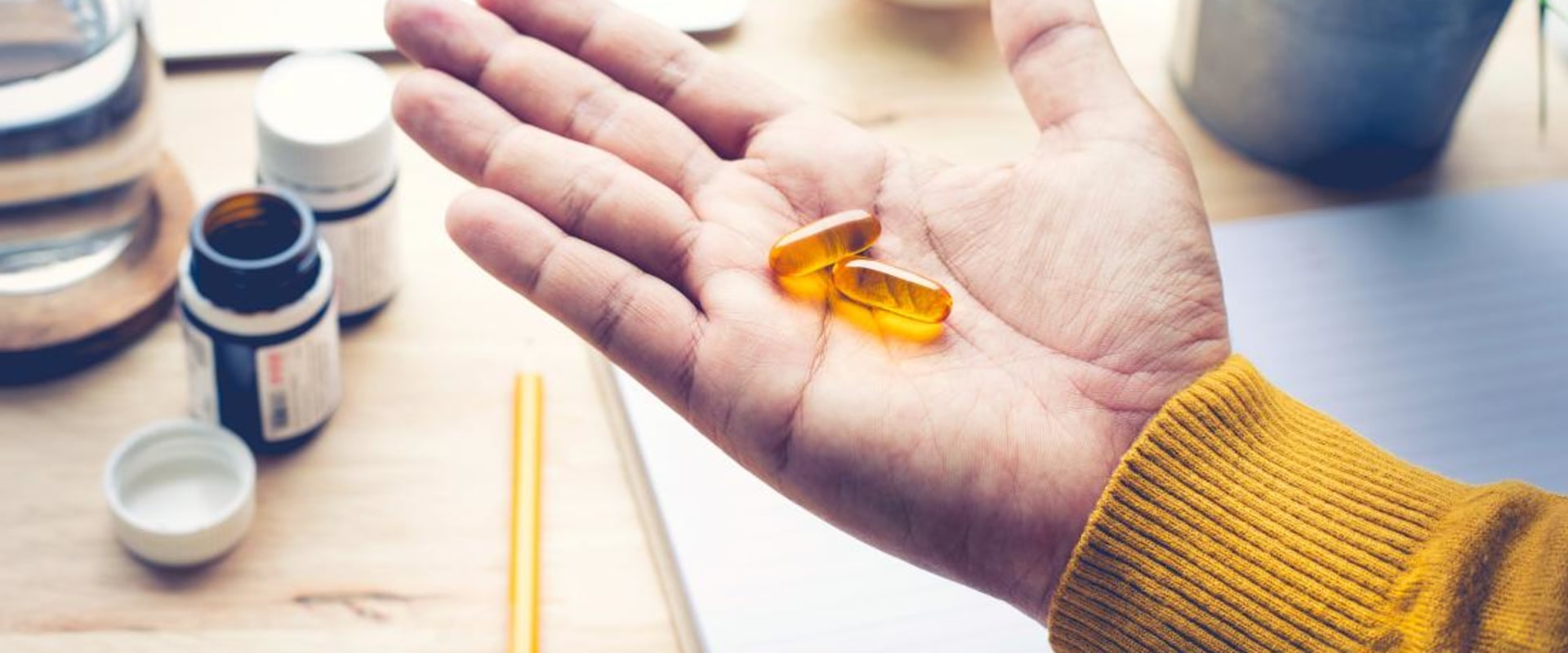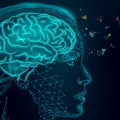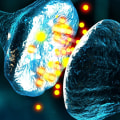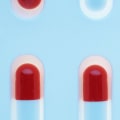Some nootropics can be used every day without fail and most people will not develop a tolerance (for example,. Naturally occurring nootropics such as Ginkgo biloba, Andrographis paniculata or American ginseng). Conversely, other nootropics may lose their effectiveness over time, unless the dose is continually increased. Prescription nootropics consist largely of stimulants such as those in some ADHD medications.
Although they work well for many people with ADHD, they are not recommended for others who simply want to improve their concentration and attention. Many college students receive this type of drug illegally and, although they seem to help in the short term, there are serious risks. Side effects may include insomnia, blurred vision, high blood pressure, fast heart rate, circulation problems, and addiction. Nootropics are generally considered safe when they are supported by clinical trials and have a good history of use with few adverse events.
Nootropics are safe if you are aware of the risks and how to avoid them. There is always a risk of side effects in extreme cases. To avoid them, start with small doses and research beforehand. Practice mindfulness while using nootropics to mitigate any temporary and safe but uncomfortable side effects.
There are a few other promising prescription drugs that may have performance-related effects on the brain. But at this point, they all seem to involve a roll of dice. You may experience a brain impulse in the short term, but you could also end up damaging your brain (or some other aspect of your health) in the long term. Some small studies show that some nootropic supplements can affect the brain.
However, there is no evidence from large, controlled studies that show that some of these supplements work consistently and are completely safe. The general evidence on the benefits of nootropics in healthy people seeking mental improvement remains controversial. In addition, it is important to note that nootropics are not free of adverse effects. Table 1 summarizes the mechanisms of action, the desired neuropsychiatric effects, and the adverse effects of the common classes of nootropics listed below.
Nootropics aren't necessarily safe to take. Although they are often prescribed for specific ailments, there are many risks involved. These medications should not be taken without consulting a doctor. Nootropics should be used only under the supervision of a physician.
Here's a look at the 14 best nootropics and how they improve performance. Caffeine is the most widely consumed psychoactive substance in the world (. Caffeine works by blocking adenosine receptors in the brain, making you feel less tired (. A low to moderate caffeine intake of 40 to 300 mg increases alertness and attention and decreases reaction time.
These doses are especially effective for people who are fatigued (4, 5,. Caffeine is a natural chemical that increases alertness, improves attention and reduces reaction times. L-theanine is a natural amino acid found in tea, but it can also be taken as a supplement (. Several studies have shown that taking 200 mg of L-theanine has a calming effect, without causing drowsiness (8,.
Taking just 50 mg, the amount found in about two cups of brewed tea, has been found to increase alpha waves in the brain, which are related to creativity (. L-theanine is even more effective when taken with caffeine. For this reason, they are often used together in performance-enhancing supplements. In addition, both are found naturally in tea (7,.
L-theanine is an amino acid found in tea that can increase the feeling of calm and may be related to greater creativity. Its effectiveness is even greater when combined with caffeine. Creatine is an amino acid that the body uses to produce proteins. After consumption, creatine enters the brain, where it binds with phosphate, creating a molecule that the brain uses to quickly feed its cells (1.This increased energy availability for brain cells is related to improved short-term memory and reasoning skills, especially in vegetarians and stressed people (12, 13, 1) Studies show that it is safe to take 5 grams of creatine a day without any negative effects.
Higher doses are also effective, but there is no research on their long-term safety (1.Creatine is an amino acid that can improve memory and reasoning skills in the short term). It is more effective in vegetarians and stressed people. Doses of 5 grams per day have been shown to be safe in the long term. Bacopa monnieri is an ancient herb used in Ayurvedic medicine to improve brain function.
Several studies have found that Bacopa monnieri supplements can speed up information processing in the brain, reduce reaction times and improve memory (16, 17, 1.Bacopa monnieri contains active compounds called bacosides, which protect the brain from oxidative stress and improve signaling in the hippocampus, an area of the brain where memories are processed (1.The effects of Bacopa monnieri are not immediately felt. Therefore, doses of 300 to 600 mg should be taken over several months for maximum benefit (20, 2). Bacopa monnieri is an herbal supplement that has been shown to improve memory and information processing when taken for several months. Rhodiola rosea is an adaptogenic herb that helps the body manage stress more effectively.
Several studies have found that Rhodiola rosea supplements can improve mood and decrease feelings of exhaustion in anxious and highly stressed people (22, 2.Taking small daily doses of Rhodiola rosea has been shown to reduce mental fatigue and increase feelings of well-being in college students during periods of stressful exams (2.Rhodiola rosea is a natural herb that can help the body adapt to periods of high stress and reduce associated mental fatigue. Panax ginseng root is an ancient medicinal plant used to stimulate brain function. Taking a single dose of 200 to 400 mg of Panax ginseng has been shown to reduce brain fatigue and significantly improve performance in difficult tasks, such as mathematical mental problems (25, 26, 2.However, it is not clear how Panax ginseng stimulates brain function). It may be due to its strong anti-inflammatory effects, which help protect the brain from oxidative stress and improve its function (2).
Some long-term studies have found that your body can adapt to ginseng, making it less effective after several months of use. Therefore, more research is needed on its long-term nootropic effects (2.Occasional doses of Panax ginseng may help improve mental function, but more research is needed on its long-term effectiveness.). Extracts from the leaves of the Ginkgo biloba tree can also have positive effects on the brain. Ginkgo biloba supplements have been shown to improve memory and mental processing in healthy older adults when taken daily for six weeks (30, 31, 3).
Taking Ginkgo biloba before a very stressful task also reduces stress-related high blood pressure and lowers levels of cortisol, a type of stress hormone (3.hypothesized that some of these benefits may be due to increased blood flow to the brain following Ginkgo biloba supplementation (3). While these results are promising, not all studies have shown beneficial effects. More research is needed to better understand the potential benefits of Ginkgo biloba on the brain (3). Some research suggests that Ginkgo biloba may improve memory and mental processing and may be beneficial in stressful situations.
Nicotine is a natural chemical found in many plants, especially tobacco. It is one of the compounds that make cigarettes so addictive. It can also be consumed through nicotine gum or absorbed through the skin using a nicotine patch. Studies show that nicotine may have nootropic effects, such as improved alertness and attention, especially in people with a naturally impaired attention span (36, 3.It has also been found to improve motor function).
In addition, chewing nicotine gum is related to better writing speed and fluidity (3) However, this substance can be addictive and lethal in high doses, so caution should be exercised (3). Because of the risk of addiction, nicotine is not recommended. However, nicotine use is justified if you are trying to quit smoking. Nicotine is a natural chemical that increases alertness, attention and motor functions.
However, it is addictive and toxic in high doses. Animal studies have shown that Noopept accelerates how quickly the brain forms and recovers memories by increasing levels of brain-derived neurotrophic factor (BDNF), a compound that promotes brain cell growth (42, 43, 4). Human research has found that this smart drug helps people recover more quickly from brain injuries, but more studies are needed to understand how it can be used as a nootropic in healthy adults (45, 4.It has been shown to improve memory in people with age-related mental impairment, but it does not appear to have much benefit in healthy adults (47, 4.studies suggest that piracetam may improve memory in healthy adults, but these findings have not been replicated (49, 50, 5.It is similar in structure to piracetam and Noopept and helps the brain recover from various injuries such as stroke, epilepsy and trauma (52, 53, 5.A study in rats found that phenotropil slightly improves memory, but there is no research to support its use as a smart drug in healthy adults (5.Commonly sold under the brand name Provigil, modafinil is a prescription drug often used to treat narcolepsy, a condition that causes uncontrollable drowsiness. similar to amphetamines or cocaine.
However, animal studies suggest that it has a lower risk of dependence (57, 5). Several studies have shown that modafinil significantly reduces the feeling of fatigue and improves memory in sleep-deprived adults (59, 60, 6). It also improves executive functioning or the ability to properly manage its time and resources. to achieve your goals (60).
Although modafinil is generally considered non-addictive, high-dose dependence and withdrawal have been reported (62, 6). It is most commonly prescribed to treat attention deficit hyperactivity disorder (ADHD) and narcolepsy, but more and more healthy adults are taking it to improve attention and focus (6) Adderall works by increasing the availability of brain chemicals dopamine and noradrenaline within the prefrontal cortex, an area of the brain that controls working memory, attention and behavior (6). The amphetamines found in Adderall make people feel more awake, attentive and optimistic. A review of 48 studies found that Adderall significantly improved people's ability to control their behavior and improved short-term memory (6).
Depending on the dose and type of pill prescribed, the effects last up to 12 hours (6). up to 43% of students use stimulant medications without a prescription (6) Side effects of Adderall abuse include anxiety, low sex drive, and sweating (70). Recreational abuse of Adderall can also cause more serious side effects, such as a heart attack, especially when mixed with alcohol (71, 72, 7.Like Adderall, it is a stimulant and increases dopamine and norepinephrine concentrations in the brain). However, it does not contain amphetamines (7.In healthy adults, Ritalin improves short-term memory, information processing speed, and attention) (75, 7.Like Adderall, Ritalin is widely used, especially in people aged 18 to 25).
The most common side effects of Ritalin include insomnia, stomach pain, headache and loss of appetite (7) It can also cause hallucinations, psychosis, seizures, cardiac arrhythmias, and high blood pressure, especially when taken in high doses (79, 80, 81, 8). Krill Oil May Support Heart Health, Brain Health and Inflammation. These are the 11 best krill oil supplements. This is an in-depth article on vitamin K2, an incredibly important nutrient that can have significant health benefits.
Many who take these medications regularly may be at risk of permanently altering their brains. Repeated use may actually accumulate, Guirguis said, especially if these drugs are used while the brain is still developing, such as in students. GMP certification increases the quality of a nootropic supplement, ensuring that the finished product is not only pure and effective, but also safe. If many participants received the nootropic and had few or no side effects, you can be more confident that the nootropic is safe.
A nootropic agent is any substance that can alter, improve or increase cognitive performance, primarily through the stimulation or inhibition of certain neurotransmitters. Over-the-counter substances that can improve brain performance or concentration, such as caffeine and creatine, are also considered nootropics. Piracetam is another synthetic nootropic molecule that is very similar to Noopept in structure and function. The safest way to get this combo is by drinking pure green tea, which contains caffeine and L-theanine, but it's also OK to combine your regular coffee or tea with an L-theanine supplement.
They did not perceive nootropics as harmful, expressed interest in “natural remedies” and reported that they preferred to use supplements rather than prescription drugs. For example, if you're trying to focus more efficiently at noon, it's best to take nootropics before then. Healthcare providers in general, and specifically those in the fields of mental health and substance abuse, should note that nootropic use is an under-recognized and evolving problem. We've reviewed dozens of natural nootropic stacks, and NooCube offers by far the best combination of cognitive enhancements, low risks of side effects and excellent value for money.
In the 165 placebo-controlled human studies of 77 nootropics with 7,152 participants in the experimental group that we reviewed for the Nootralize application, no serious adverse effects were observed that were significantly more frequent than in the placebo groups in the studies. We describe four cases of probable psychiatric adverse effects induced by nootropics to illustrate this theory. All cases improved rapidly and without complications with symptomatic treatment and discontinuation of nootropics. .
.




